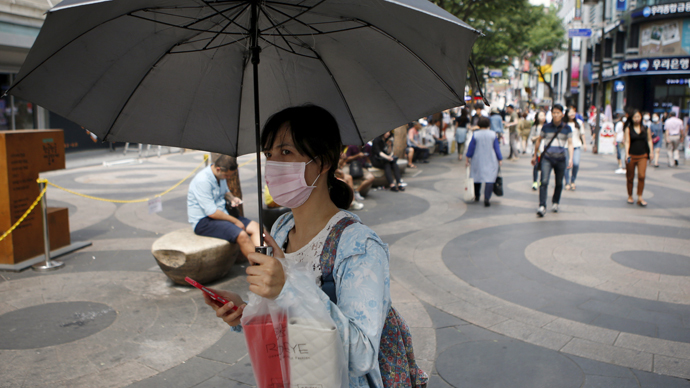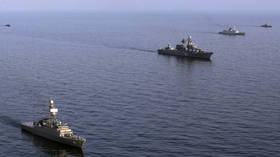S. Korea pledges $45.2 mln to fight MERS as death toll reaches 19

The government of South Korea has authorized the use of over $45 million in reserve funds to support the nation’s struggle with an outbreak of Middle East Respiratory Syndrome (MERS), which took three more lives on Tuesday.
The South Korean Cabinet has approved the use of 50.5 billion won (US$45.2 million), offered by the finance ministry, to purchase special materials and equipment, as well as boost medical staff, Yonhap news agency reported.
“The money will be allocated in a timely manner to support the government’s all-out effort to contain MERS,” the ministry said.
READ MORE: MERS death toll reaches 16 among 150 confirmed S. Korea outbreak victims
The funding is to go to the state-run National Medical Center, located in Seoul, which currently serves as South Korea’s central MERS treatment facility. It will also help hospitals that treat non-MERS patients which are overloaded because the outbreak has led some other hospitals to temporarily closing.
In addition, the government has promised to provide monetary compensation for people who have been kept in isolation as a result of the outbreak.
Seoul has not ruled out the possibility of dedicating additional funds to fight the disease in the future.
The first MERS case in the Asian country was confirmed on May 20. With 5,586 people currently in quarantine, the outbreak has become a real health crisis. Of the 154 people diagnosed with the virus, 19 have died.
READ MORE: WHO plans emergency meeting as S. Korea MERS cases reach 145
The fatality rate of the disease is estimated at 12.3 percent by the South Korean health ministry, which is a much lower figure than the previous estimate of 40 percent.
MERS infection is more probable for people with underlying medical problems, who are also more likely to suffer severe consequences due to the disease.
Another name for the virus is “camel flu,” the first known case of which was reported in Saudi Arabia in 2012. The symptoms include fever, coughing and shortness of breath, but there can be more serious complications, such as pneumonia or kidney failure.












